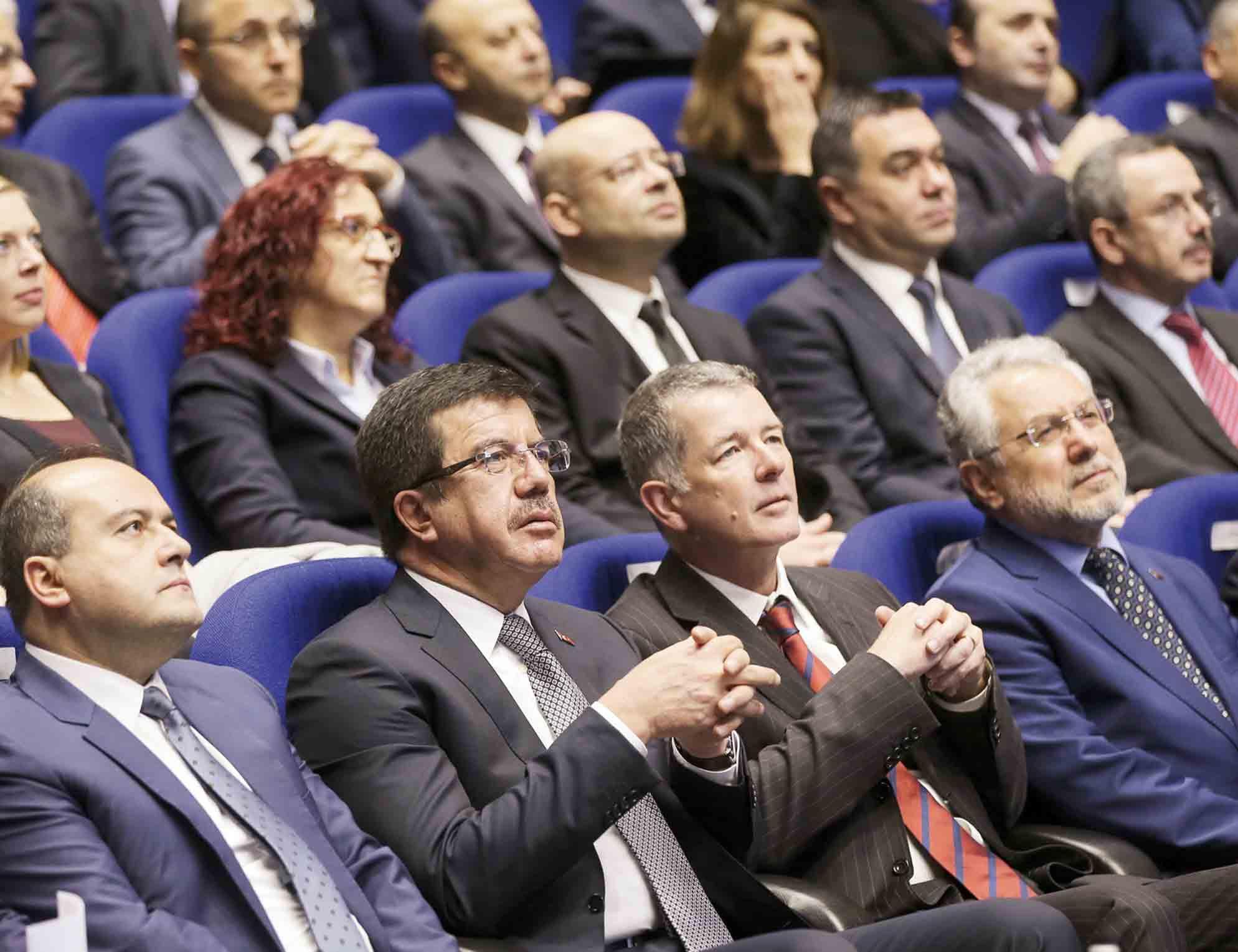
Turkey launched on Nov. 20 its first behavioral economics project, “Nudge Turkey,” which aims to use psychology in the analysis of economic decision-making.
“The first official department for developing behavioral public policies has been established within the Economy Ministry. We will develop policies for all of Turkey,” Economy Minister Nihat Zeybekci said at the launch of the project in Ankara.
Zeybekci noted that the “Nudge Turkey” project was developed before U.S. academic Richard Thaler won the 2017 Nobel Economic Prize for his contributions to behavioral economics.
“It was a nice coincidence,” he said.
The ministry has been working on “Nudge Turkey” since 2015 and the project is conducted by the Economy Ministry in partnership with the U.K. Embassy, EY Turkey and the London-based Behavioral Insights Team.
“I think the U.K. has good experience in this field and we will benefit from it,” Zeybekci said.
Also speaking at the launch, U.K. Ambassador to Ankara Richard Moore said his country had made good use of behavioral science in economic policymaking in recent years.
“We aim to support Turkey’s economic reform program with this project,” Moore said.
He underlined the significance of “nudging” in terms of public policy, saying that behavioral insights can help develop new, lower-cost policies than current policy instruments.
The U.K. in 2010 set up the Behavioral Insights Team, which consists of psychologists, policymakers and economists, Moore noted.
“They use the outcomes of behavioral economics and social psychology in order to develop public policies,” he said.
“To be honest we can say that the U.K. is the world leader in this regard. I hope this project will further our cooperation and we will learn from each other’s experiences,” he added.
Muhammed Emin Torunoğlu, a foreign trade expert at the Economy Ministry, said behavioral economics helps to guide people’s decision-making through various psychological elements.
For example, changing just one line in a tax letter can increase the rate of tax collection by 12 percent, Torunoğlu noted.
“For our country, even an increase of 1 percent in tax collection could provide an additional revenue of 6.5 billion Turkish Liras [$1.6 billion],” he added.